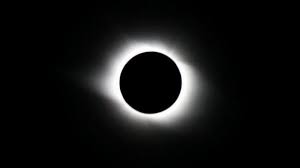
Why Is It Impossible to Look at the Sun During a Solar Eclipse?
Share
A total solar eclipse is one of nature's most spectacular events, but astronomers and ophthalmologists warn that looking at the sun without solar eclipse glasses or other protective gear can damage your eyes and cause permanent blindness. The only safe time to observe with the naked eye is when the moon completely covers the sun. Totality lasts from seconds to 7.5 minutes, depending on the circumstances, and transforms the daytime sky into deep twilight. However, turn away as soon as the sun reappears because even the smallest sliver is dangerously bright.
The sun is essentially a massive, continuous thermonuclear explosion that emits intense radiation ranging from infrared to ultraviolet light and beyond. Many materials absorb infrared light, which is easily converted to heat, whereas ultraviolet light causes sunburn.
The mildest side effects of exposure to bright sunlight are headaches and temporary vision distortion. UV radiation, according to the Cleveland Clinic, can cause a variety of eye disorders, including macular degeneration, solar retinitis, and corneal dystrophies. Because the effects are cumulative, looking at the sun twice causes twice the damage as looking at it once, even if viewed on different days.

Although people have a natural aversion to bright light, the temptation to look at the sun during a solar eclipse can be overwhelming, leading to errors in judgement. The darkness that comes with an eclipse can override the reflex to squint and avert vision, increasing the amount of intense light striking the retina and increasing the likelihood of eye damage.
Viewing even a small portion of the sun can be hazardous due to its intensity. The lens of the eye focuses and concentrates sunlight on the retina, scorching it and causing solar retinopathy; because the retina lacks pain receptors, you won't notice the damage until it's too late. For the same reason, do not observe an eclipse with unfiltered telescopes, binoculars, or photographic lenses.

Reduced visual acuity, Central scotomas (blind spots), Chromatopsia (disruption or tinting of colour vision), Metamorphosia (disruption or distortion of shape perception), and Photophobia are all symptoms of solar eclipse eye damage (light sensitivity). If you experience any of these symptoms, you should consult an eye doctor for an examination and treatment.
